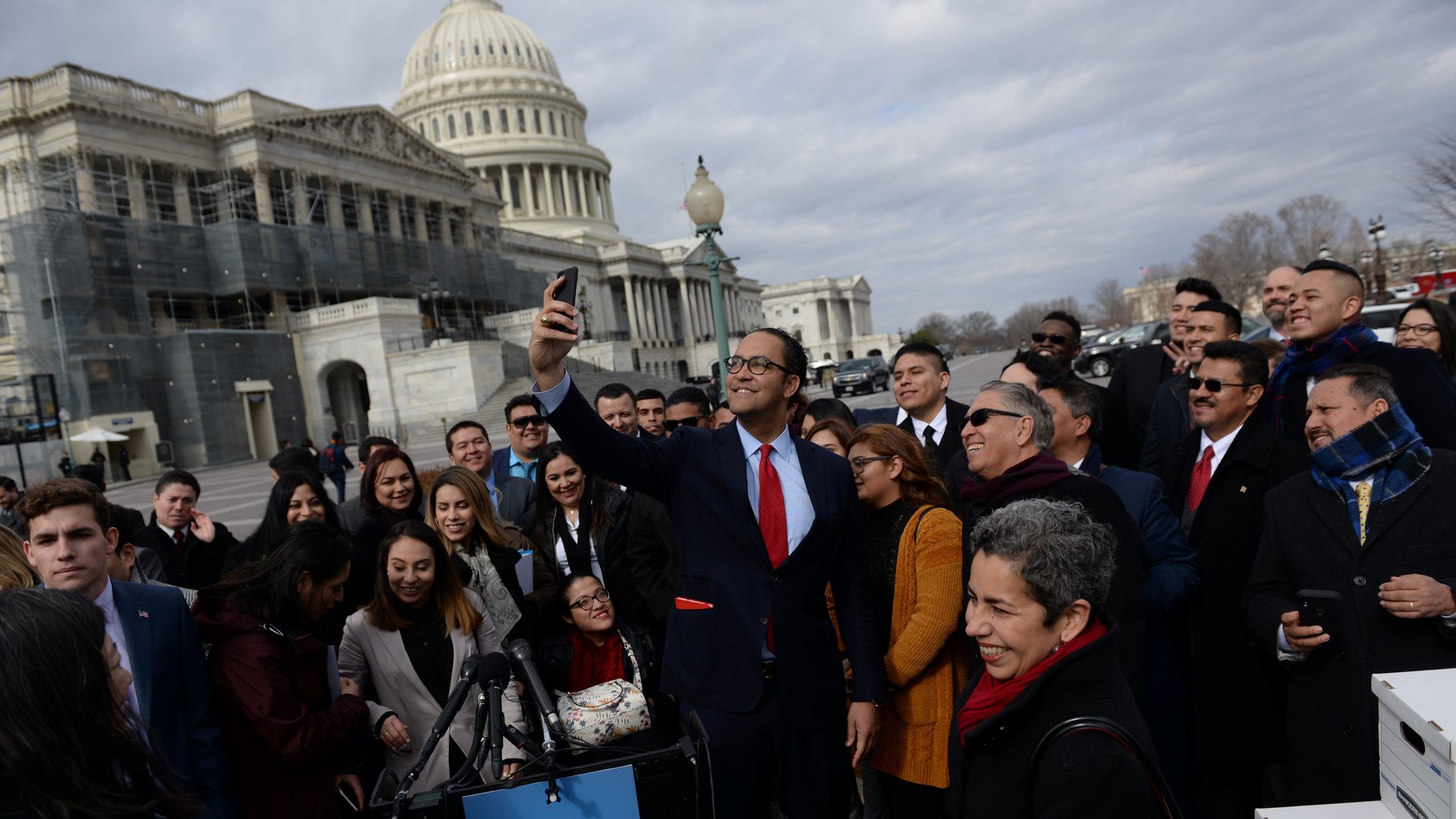Why more Texas Republicans have found the strength to criticize Trump’s tweets
Most Republicans in the US have steered clear of commenting on the “go back to your country” ugliness perpetrated by Donald Trump. In Texas, that may not be the savviest political calculation.


Most Republicans in the US have steered clear of commenting on the “go back to your country” ugliness perpetrated by Donald Trump. In Texas, that may not be the savviest political calculation.
In a state where the majority of the population are minorities, several GOP members of Congress have spoken out against Trump’s tweeted suggestion that four congresswomen of color “go back and help fix the totally broken and crime infested places from which they came.”
Will Hurd, a US representative from West Texas, was one of the four Republicans who voted with House Democrats yesterday to condemn Trump’s tweets. Hurd, the sole black Republican in the House, said the tweets were not only racist, but bad politics.
“If the Republican party in Texas doesn’t start looking like Texas, there won’t be a Republican party in Texas,” he told CNN’s Christiane Amanpour. “This makes it harder in order to take our ideas and our platform to communities that don’t necessarily identify with the Republican party.”
Whites now make up less than half of Texas’s population, a share expected to keep shrinking. Hispanics are expected to outnumber whites by 2022.
Texas Republicans in urban areas have found their message doesn’t play as well with a more diverse crowd. Their winning margins have been shrinking in the counties that are home to the state’s biggest cities.
Pete Olson, who was used to trouncing Democrats in his congressional district near Houston by 10 or more percentage points, won by less than five in 2018. He has spoken out against Trump’s tweets—though he sided with his party on the House vote.
Other Texas Republicans who criticized Trump were US senator John Cornyn, who called the tweets “a mistake and an unforced error,” and congressman Dan Crenshaw, who also used the opportunity to take a swipe at Democrats.
Crenshaw also represents a district near Houston, the most diverse city in the country by some measures. He, too, voted with his Republican colleagues against denouncing the presidential tweets.
The incident was enough for at least one Texas Republican to switch sides. Elsa Alcala, a former judge in the Texas Court of Criminal Appeals, said she was leaving the GOP, citing Trump’s “racism” in a Facebook post.
“Trump speaks about brown people like me as lesser beings,” she told the Austin American-Statesman. “It’s cliche to say, but the Republican party left me.”